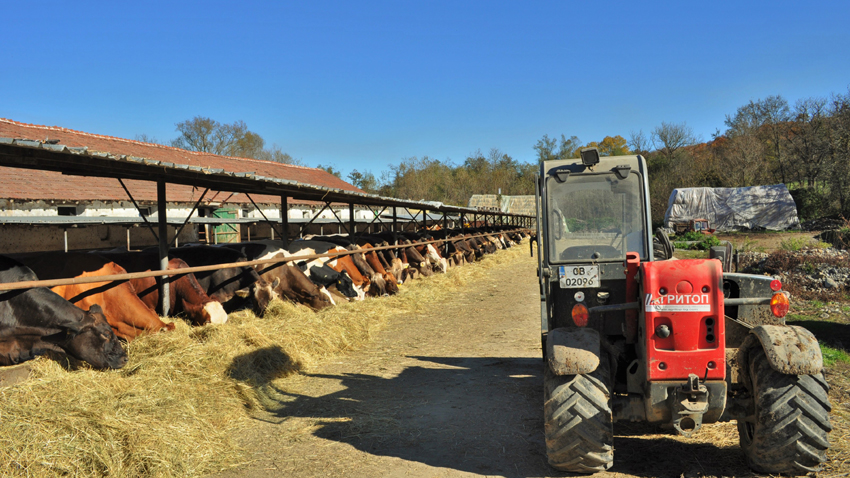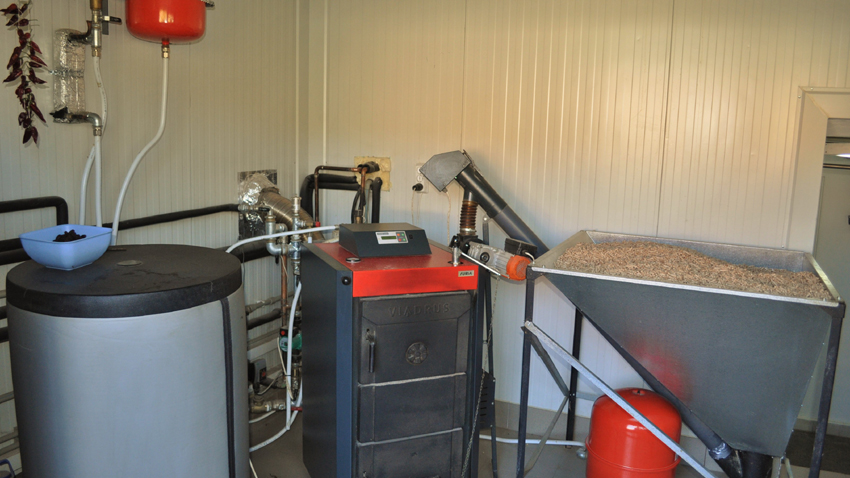Is it easy to be a farmer in Bulgaria? With plenty of work and imagination one might deal with the avalanche of administrative obstacles and troubles that inevitably hit every entrepreneur in Bulgaria If you manage to attract foreign funding for development you could make modest profit. This is the case with Rositsa and Ivan Danchev from the village of Dobrodan near Trojan. They are owners of the first certified organic farm for cow's milk in the country.

The Danchevs take care of 110 cows and they sell the milk they produce to local dairies. The family own meadows and pastures, as well as areas on which they grow crops to feed the animals. In order to develop successful business, Rositsa and Ivan rely not only on entrepreneurship and optimism. Some time ago they received European financing for two projects for buying modern European equipment. This way they bought lawn mowers, trailers, mixers and so on. Everything was going slow at first and it was hard but maybe we got used to the procedures and now the obstacles are fewer, Ivan says.
The latest improvement to the farm was also realized with foreign financing. This is an installation for water heating, which uses heat from the cooling milk in combination with solar energy and wood pellets. The system was developed by Bulgarian scientists and it reduces the cost of electricity by two thirds. The project is supported by the largest Norwegian non-governmental organization Norges Vel and was realized with financial support from the Norwegian Financial Mechanism - Green Industry Innovation.

"This is one of three pilot farms in the country that have this innovative system," Mrs.Jorunn Tonnesen from Norges Vel says and adds:
English: Alexander Markov
Photos: Veneta NikolovaMeasurement equipment installed at the Bulgarian Antarctic base "St. Kliment Ohridski" has been collecting valuable data on solar activity and its relation to the Earth's magnetic field for two months. The research is part of Bulgaria's first polar..
558 Bulgarians aged 18, selected from 1,785 applicants, will be able to embark on their dream journey by train across Europe, learn from other cultures and build new friendships. They have been selected to receive a free travel pass through the..
In the era of increased digitalization and the penetration of artificial intelligence into all spheres of our lives, the professions of people with high qualifications and higher pay are most at risk of extinction. The least affected are jobs that..
The festive service for the consecration of the new Bulgarian Orthodox church in London is led by His Holiness Daniil , Patriarch of Bulgaria, who also..
The Martenitsa Festival was held in Brussels f or the third consecutive year . Cultural organizations from Bulgaria, Romania and Moldova presented their..
Exactly 3 years ago, on February 24, Russia’s invasion of Ukraine began – an event that woke up Europe 77 years after the end of World War II and called..

+359 2 9336 661
